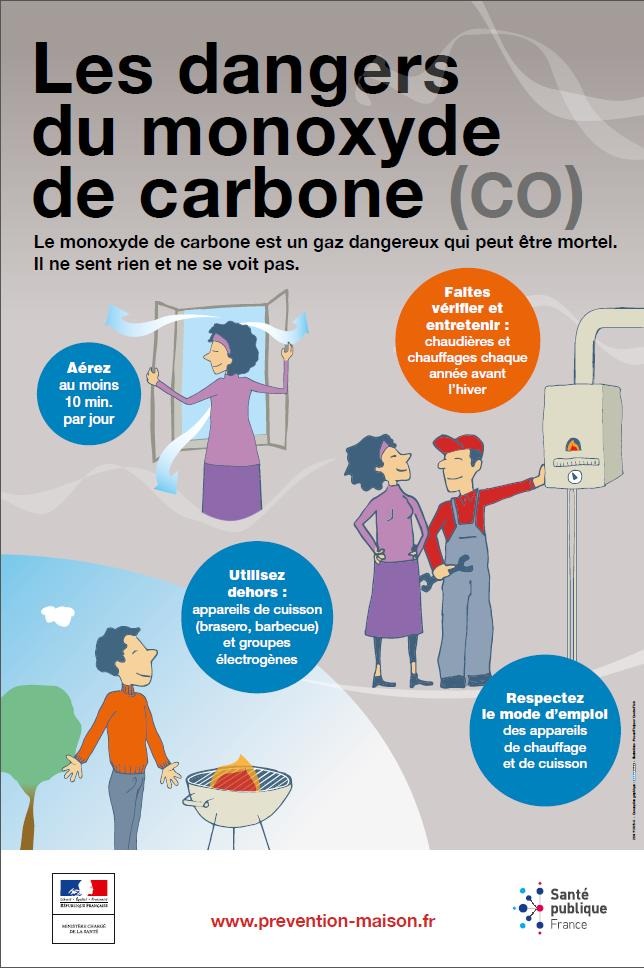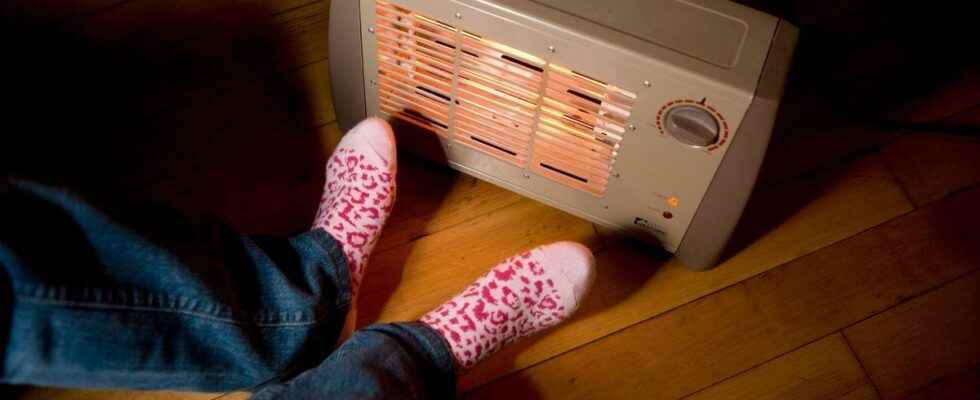Published on
Updated
Reading 2 mins.
With the arrival of cooler temperatures, the National Agency for Food, Environmental and Occupational Health Safety is once again warning of the risks of carbon monoxide poisoning that can occur at home.
About 4,000 cases of carbon monoxide poisoning are detected each year in France, claiming about a hundred victims. The risk of poisoning persists every winter, especially when turning on the radiators and “heating” appliances. This is why the National Agency for Food, Environmental and Occupational Health Safety (ANSES) published a new reminder of the risks and precautions for use on November 10.
Hijacking outdoor devices, a risky practice
The security agency targets in particular a new and yet risky practice: that of heating one’s home with devices not initially intended for this use: barbecues, coal stoves, generators or braziers would be the cause of 70 cases of poisoning identified this fall by poison control centres. More than half of these people were hospitalized, some of whom had to be treated by administering oxygen in a hyperbaric chamber.
The reason is simple: outdoors, these devices that emit a small amount of carbon monoxide do not pose a problem, since it is dispersed in the air. “On the other hand, in a confined space, the concentration of carbon monoxide in the indoor air can quickly increase and endanger the people and animals present” recalls the ANSES announcement. A danger that has neither sound nor smell. Early signs of poisoning are otherwise not specific to carbon monoxide and may seem common
- Headache ;
- Fatigue ;
- Dizziness;
- Nausea or vomiting.
“It is all the more necessary to think of carbon monoxide poisoning as several people in the same household experience these symptoms” recalls the press release.
What to do to avoid poisoning:
However, there are good practices to avoid any risk of poisoning during the winter.
- Ventilate your home regularly;
- For heating, never use appliances that are not designed for this purpose: generators, braziers, barbecues, embers or barbecue coals, coal stoves, cookers;
- Do not use mobile auxiliary heaters continuously;
- Have ducts and chimneys swept at least once a year;
- Before the heating season, have your installations checked (boiler, chimneys, water heater, pellet stoves, wood stoves, etc.) by a qualified professional.
Do you fear poisoning? What to do ?
- Immediately ventilate the premises, stop combustion appliances if possible and evacuate the premises;
- In the event of life-threatening signs (loss of consciousness), call the emergency services by dialing 15 or 112, or 114 for the deaf and hard of hearing.
- For other situations, call a poison control centre, they can be reached 24 hours a day, 7 days a week.
If in doubt, contact your centre. Carbon monoxide is a deadly gas. An intoxicated person can quickly lose consciousness, fall into a coma and require oxygen, recalls ANSES.

